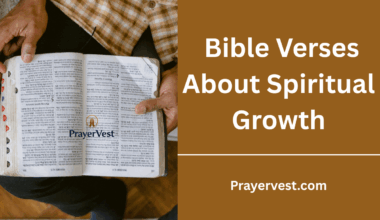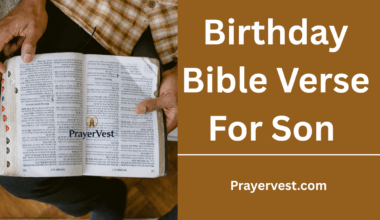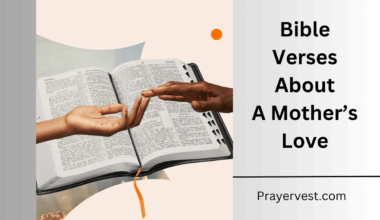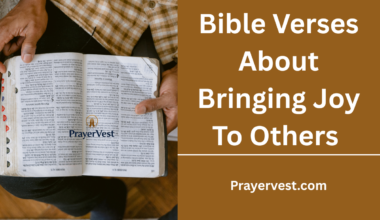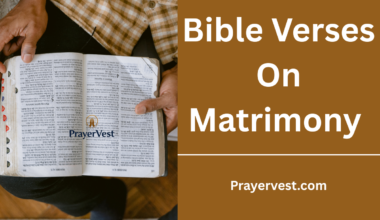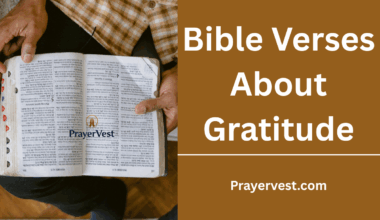The existence of bad individuals is a recurrent motif in the Bible, highlighting the moral difficulties and spiritual struggles that people encounter. These people contrast with God’s righteous ways because they are motivated by cruelty, lying, or selfishness. Scripture offers unambiguous instructions for distinguishing between right and wrong by outlining the deeds, motivations, and final results of the wicked.
By studying these verses, believers can gain a greater understanding of the nature of evil, identify how it appears in day-to-day situations, and learn how to deal with others who don’t share their beliefs.
The Bible also emphasizes God’s ultimate justice, demonstrating that even if evil may flourish momentarily, it is always under His control. The fleeting nature of their schemes and the certainty of divine accountability are often emphasized in verses regarding evil individuals.
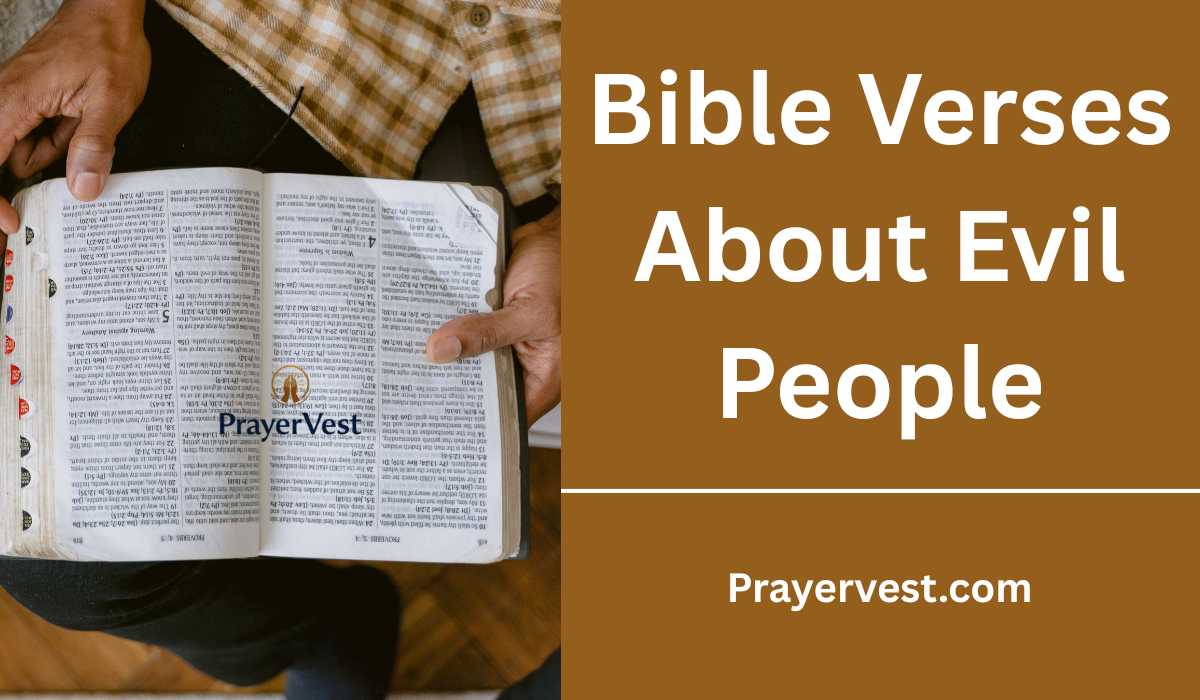

Scripture reminds Christians that God sees every act of wickedness and will act in His perfect time to uphold righteousness. It does this through the teachings of Jesus, the Psalms, and Proverbs. For individuals who want to live truthfully in a world full of evil, these texts are not only cautionary warnings but also sources of inspiration and hope.
Furthermore, believers are better prepared to react sensibly and faithfully when they comprehend the biblical perspective on bad persons. The verses emphasize patience, discernment, and alertness while demonstrating that God is the rightful owner of justice and that it is not our place to exact revenge. In order to overcome the difficulties presented by wickedness, they also stress the significance of prayer, integrity, and faithfulness to God’s Word. By considering these verses, readers are reminded that even while evil could seem powerful or frightening, God’s might, justice, and protection ultimately triumph, providing both direction and comfort during morally dubious times.
40 Powerful Bible Verses About Evil People (2026)
1. Psalm 37:1-2
“Do not fret because of those who are evil or be envious of those who do wrong; for like the grass they will soon wither, like green plants they will soon die away.”
This passage provides a perspective on the fleeting nature of wickedness. Evil people may appear powerful or successful for a time, but their influence and achievements are temporary. God instructs believers to focus on patience, trust, and long-term righteousness rather than being consumed by envy or fear of wrongdoing. The imagery emphasizes the transient nature of human power in contrast to divine justice and stability.
2. Proverbs 6:16-19
“There are six things the Lord hates, seven that are detestable to him: haughty eyes, a lying tongue, hands that shed innocent blood, a heart that devises wicked schemes, feet that are quick to rush into evil, a false witness who pours out lies, and a person who stirs up conflict in the community.”
This passage outlines specific behaviors that define wickedness in God’s eyes. It highlights that evil is identifiable through tangible actions such as deceit, violence, manipulation, and the promotion of conflict. By enumerating these traits, the scripture provides a clear framework for recognizing and avoiding corrupt influences while emphasizing that God’s moral standards are absolute and non-negotiable.
3. Romans 12:19
“Do not take revenge, my dear friends, but leave room for God’s wrath, for it is written: ‘It is mine to avenge; I will repay,’ says the Lord.”
Paul emphasizes that the punishment of evil is ultimately in God’s hands. While people may be tempted to seek personal revenge, this verse stresses divine justice over human retaliation. It affirms that God observes all actions, administers judgment righteously, and ensures that evil is addressed according to His perfect wisdom. The instruction to refrain from vengeance reinforces reliance on God’s sovereignty.
4. Proverbs 3:31
“Do not envy the violent or choose any of their ways.”
This verse warns against admiring or imitating those who prosper through aggression, deceit, or cruelty. Evil may appear attractive or successful externally, but following such paths leads to harm and spiritual destruction. The scripture encourages discernment and adherence to righteousness rather than yielding to the superficial success of the wicked.
5. Psalm 1:1-2
“Blessed is the one who does not walk in step with the wicked or stand in the way that sinners take or sit in the company of mockers, but whose delight is in the law of the Lord, and who meditates on his law day and night.”
This foundational psalm contrasts the lives of the righteous and the wicked. Avoiding the influence of evil and immersing oneself in God’s law leads to stability, prosperity, and spiritual growth. The passage highlights that the choices of companionship, focus, and meditation have long-term consequences and that moral alignment with God’s principles provides enduring security and blessing.
6. Matthew 7:15-16
“Watch out for false prophets. They come to you in sheep’s clothing, but inwardly they are ferocious wolves. By their fruit you will recognize them.”
Jesus teaches that evil is often hidden beneath a façade of righteousness. True character is revealed by actions, outcomes, and consistent behavior rather than appearances or persuasive speech. This passage underscores the need for discernment in relationships and spiritual guidance, warning that deception can come from unexpected sources and that careful observation is essential to distinguish genuine leaders from corrupt influencers.
7. Psalm 37:12-13
“The wicked plot against the righteous and gnash their teeth at them; but the Lord laughs at the wicked, for he knows their day is coming.”
This verse conveys that although evil people may actively scheme and oppose the righteous, their efforts are ultimately futile. God’s awareness of their actions ensures that justice will prevail. The scripture demonstrates that wickedness, though sometimes aggressive or threatening, is transient and subject to divine judgment, reinforcing the principle of ultimate accountability.
8. Proverbs 16:4
“The Lord has made everything for its purpose, even the wicked for the day of trouble.”
This passage suggests that even those who commit evil are under God’s sovereign control and that their actions, while harmful, serve a larger divine plan. It highlights that God is aware of every human act, and the wicked are not outside His judgment or governance. Evil is ultimately contained within God’s design and timeline.
9. Psalm 10:2-3
“In arrogance the wicked hotly pursue the poor; let them be caught in the schemes they have devised. For the wicked boasts of the desires of his soul, and the one greedy for gain curses and renounces the Lord.”
This passage describes the boldness and arrogance of evil people who exploit the vulnerable and act selfishly. It shows that wickedness often involves greed, oppression, and rejection of God. The psalm underscores that such behavior is ultimately conspicuous and subject to divine scrutiny, emphasizing the moral contrast between the oppressors and God’s protection of the righteous.
10. Proverbs 11:21
“Be sure of this: The wicked will not go unpunished, but those who are righteous will go free.”
The scripture stresses the certainty of divine justice. Evil may seem to prosper temporarily, but God ensures that wickedness does not escape accountability. This verse reinforces the principle that righteousness ultimately triumphs, and moral integrity aligns believers with God’s protective oversight.
11. Psalm 34:21
“Evil will slay the wicked; the foes of the righteous will be condemned.”
This verse illustrates the ultimate fate of those who act unjustly or oppose God’s people. The language indicates that the consequences of evil are inherent in the actions themselves and that God’s justice is inevitable. Evil may exist in the present, but divine law ensures it meets its end.
12. Proverbs 24:19-20
“Do not fret because of evildoers or be envious of the wicked, for the evildoer has no future hope, and the lamp of the wicked will be snuffed out.”
This passage advises against obsession with or envy of evil people. Their success is temporary, and they lack enduring security or hope. God contrasts the fleeting nature of wickedness with the lasting blessings of the righteous, assuring that evil is ultimately self-defeating.
13. Isaiah 59:7-8
“Their feet rush into sin; they are swift to shed innocent blood. Their thoughts are evil; ruin and destruction mark their ways. The way of peace they do not know; there is no justice in their paths.”
This passage depicts the comprehensive nature of evil behavior, affecting thoughts, actions, and societal impact. Wickedness is destructive not only personally but communally, spreading injustice and chaos. The scripture highlights the contrast between human corruption and the divine order, emphasizing the moral dissonance that evil generates in the world.
14. Romans 1:29-31
“They have become filled with every kind of wickedness, evil, greed, and depravity. They are full of envy, murder, strife, deceit, and malice. They are gossips, slanderers, God-haters, insolent, arrogant, and boastful; they invent ways of doing evil; they disobey their parents.”
Paul provides a comprehensive catalog of sinful behaviors, showing the pervasiveness of human wickedness when God is rejected. The passage underscores the spiritual and moral consequences of turning away from God and illustrates the social and relational damage caused by persistent evil.
15. Psalm 37:7-9
“Be still before the Lord and wait patiently for him; do not fret when people succeed in their ways, when they carry out their wicked schemes. Refrain from anger and turn from wrath; do not fret—it leads only to evil. For those who are evil will be destroyed, but those who hope in the Lord will inherit the land.”
This verse emphasizes patience and trust in God’s justice. While the wicked may appear to prosper, their schemes are temporary. Divine timing ensures that evil is corrected and righteousness is rewarded. The passage provides a framework for enduring moral challenges without succumbing to bitterness or revenge.
16. Proverbs 14:32
“When calamity comes, the wicked are brought down, but even in death the righteous have a refuge.”
This scripture highlights the ultimate vulnerability of the wicked in contrast to the protective favor granted to the righteous. Evil may seem invincible in the short term, but it is inherently unstable. God’s oversight ensures that the consequences of wickedness manifest, whereas righteousness secures spiritual refuge.
17. Jeremiah 17:11
“Like a partridge that hatches eggs it did not lay are those who gain riches by unjust means. When their lives are half gone, their riches will desert them, and in the end, they will prove to be fools.”
The verse underscores the futility of ill-gotten gain. Wealth and success acquired through evil actions are ultimately unstable and meaningless. God ensures that justice is inherent in the moral order, and wrongdoing carries inevitable consequences, both practical and spiritual.
18. Psalm 73:18-20
“Surely you place them on slippery ground; you cast them down to ruin. How suddenly are they destroyed, completely swept away by terrors!”
This passage depicts the sudden and inevitable downfall of the wicked. Despite appearances of security or prosperity, God’s judgment is decisive and unavoidable. The psalmist emphasizes that human schemes cannot ultimately escape divine oversight.
19. Proverbs 21:7
“The violence of the wicked will drag them away, for they refuse to do what is right.”
This verse highlights the self-destructive nature of evil. Wickedness is not only morally corrupt but also practically dangerous, leading to downfall and ruin. God’s moral order ensures that evil actions carry consequences that cannot be escaped.
20. Matthew 13:41-42
“The Son of Man will send out his angels, and they will weed out of his kingdom everything that causes sin and all who do evil. They will throw them into the blazing furnace, where there will be weeping and gnashing of teeth.”
Jesus speaks of ultimate judgment against evil people, emphasizing that sin and wickedness will be eradicated. This passage underscores the certainty of divine accountability and the separation of righteousness from evil in God’s final plan, illustrating the ultimate consequences of persistent wickedness.
21. Psalm 37:32-33
“The wicked lie in wait for the righteous, intent on putting them to death; but the Lord will not leave them in the power of the wicked or let them be condemned when brought to trial.”
This passage shows that while evil people may actively scheme against the righteous, God intervenes to protect His own. The verse emphasizes that wickedness, though threatening, cannot ultimately overcome divine protection or justice.
22. Proverbs 28:12
“When the righteous triumph, there is great elation; but when the wicked rise to power, people go into hiding.”
The verse contrasts the effects of righteousness versus wickedness in society. Evil may inspire fear and suppression, but its success is unstable and alarming, highlighting the disruptive influence of immoral leadership or action.
23. Psalm 37:28
“For the Lord loves the just and will not forsake his faithful ones. Wrongdoers will be completely destroyed; the offspring of the wicked will perish.”
God’s justice is portrayed as comprehensive and generational. The verse underscores that evil actions carry consequences that extend beyond immediate circumstances, reinforcing the certainty of divine oversight and the ultimate fate of the wicked.
24. Proverbs 29:2
“When the righteous thrive, the people rejoice; when the wicked rule, the people groan.”
This passage illustrates the societal impact of evil leadership and actions. Wickedness produces collective suffering, whereas righteousness promotes peace, stability, and joy. The scripture highlights the broader consequences of moral choices beyond individual behavior.
25. Psalm 37:35-36
“I have seen a wicked and ruthless man flourishing like a luxuriant native tree, but he soon passed away and was no more; though I looked for him, he could not be found.”
The psalmist reflects on the temporary nature of apparent success among the wicked. Evil may appear prosperous, but it lacks permanence and is subject to sudden removal. The imagery emphasizes the transitory and fragile foundation of wickedness.
26. Jeremiah 23:11
“Both prophet and priest are godless; even in my house I find their wickedness,” declares the Lord.
This verse addresses corruption in positions of spiritual authority. Evil is not confined to ordinary individuals but can infiltrate leadership, creating moral decay within communities. God’s observation underscores the accountability of all, regardless of status.
27. Psalm 94:3-4
“Lord, how long will the wicked, how long will the wicked be jubilant? They pour out arrogant words; all the evildoers are full of boasting.”
The psalm expresses frustration at the apparent success of evil people. Their arrogance and pride are evident, yet the broader context affirms that God is aware of all actions and will ultimately hold the wicked accountable.
28. Proverbs 12:7
“The wicked are overthrown and are no more, but the house of the righteous stands firm.”
The verse highlights the instability of evil contrasted with the security of righteousness. While wickedness is temporary and self-destructive, the righteous enjoy a foundation that endures both spiritually and socially.
29. Isaiah 14:12-15
“How you have fallen from heaven, morning star, son of the dawn! You have been cast down to the earth, you who once laid low the nations! You said in your heart, ‘I will ascend to the heavens; I will raise my throne above the stars of God…’ But you are brought down to the realm of the dead.”
This passage depicts the pride and downfall of evil, both human and spiritual. Ambition and rebellion against God inevitably lead to destruction, illustrating the principle that evil rooted in arrogance cannot endure before divine authority.
30. Psalm 9:16
“The Lord is known by his acts of justice; the wicked are ensnared by the work of their hands.”
Evil people create their own entrapments through their actions. God’s justice operates through the natural consequences of wrongdoing, emphasizing that moral law is inherently self-correcting under divine governance.
31. Proverbs 15:29
“The Lord is far from the wicked but he hears the prayer of the righteous.”
This verse highlights the relational consequence of evil behavior: separation from God. Wickedness creates spiritual distance, whereas righteousness fosters closeness to divine guidance and protection.
32. Ezekiel 18:20
“The one who sins is the one who will die. The child will not share the guilt of the parent, nor will the parent share the guilt of the child. The righteousness of the righteous will be credited to them, and the wickedness of the wicked will be charged against them.”
Ezekiel clarifies the principle of individual responsibility. Evil is accountable directly to the person who commits it, reinforcing the inevitability of justice and the personal consequences of moral choices.
33. Psalm 37:20
“But the wicked will perish: Though the Lord’s enemies are like the flowers of the field, they will be consumed, they will go up in smoke.”
This passage emphasizes the transient nature of evil. Even when evil seems widespread or beautiful superficially, it is inherently temporary and destined for destruction under God’s judgment.
34. Proverbs 10:27
“The fear of the Lord adds length to life, but the years of the wicked are cut short.”
The verse shows the direct consequences of evil and the benefits of righteousness. Wickedness shortens stability and longevity, whereas reverence for God ensures security and endurance.
35. Micah 3:1-3
“Then I said, ‘Listen, you leaders of Jacob, you rulers of Israel. Should you not embrace justice, you who hate good and love evil; who tear the skin from my people and the flesh from their bones?’”
Micah confronts institutionalized wickedness, highlighting the societal and physical harm inflicted by corrupt leaders. Evil extends beyond personal immorality, affecting communities and requiring divine accountability.
36. Psalm 52:7
“Surely God will bring you down to everlasting ruin; he will snatch you up and pluck you from your tent; he will uproot you from the land of the living.”
This verse emphasizes the certainty of judgment for evil people. The imagery conveys complete and irreversible destruction for those who engage in deceit or violence.
37. Nahum 1:3
“The Lord is slow to anger but great in power; the Lord will not leave the guilty unpunished.”
God’s justice is deliberate yet inevitable. Even when wickedness seems unchecked, the divine response is certain, demonstrating the balance between patience and ultimate accountability.
38. Revelation 21:8
“But the cowardly, the unbelieving, the vile, the murderers, the sexually immoral, those who practice magic arts, the idolaters and all liars—they will be consigned to the fiery lake of burning sulfur. This is the second death.”
This passage provides a definitive depiction of the ultimate fate of evil people. It demonstrates the seriousness with which God regards persistent wickedness and the absolute finality of divine judgment.
39. Proverbs 16:18
“Pride goes before destruction, a haughty spirit before a fall.”
The verse explains the self-destructive nature of evil rooted in arrogance. Those who elevate themselves through wickedness inevitably face collapse, illustrating the built-in consequences of moral corruption.
40. Revelation 22:12-13
“Look, I am coming soon! My reward is with me, and I will give to each person according to what they have done. I am the Alpha and the Omega, the First and the Last, the Beginning and the End.”
This passage reinforces that every action, good or evil, is known and will be judged by God. Evil people will face accountability, while justice is ultimately inseparable from divine oversight, completing the biblical narrative of moral consequence.
Conclusion
It is evident from studying the Bible’s lessons on evil individuals that God is always aware of and in control of wickedness, even though it is frequently strong and crafty. Scripture underscores over and time again that the plans of the wicked are fleeting and will finally be judged by God. These verses urge believers to live virtuously, be watchful, and have faith in God’s justice. They also act as a warning and a source of comfort. By directing us to avoid dishonesty, withstand temptation, and maintain our faith, an understanding of the nature of evil via the prism of Scripture enhances discernment.
Furthermore, rather than taking revenge, the Bible promotes a reaction based on discernment, prayer, and faith in God. Believers can deal with bad individuals without losing their integrity or serenity if they have faith in God’s power and timing. These verses emphasize that the best strategies for defeating wickedness are patience, faithfulness, and righteousness. When we consider these verses, we are reminded that God’s justice and protection are paramount, providing hope, direction, and the certainty that evil will never overcome His kindness and truth.

